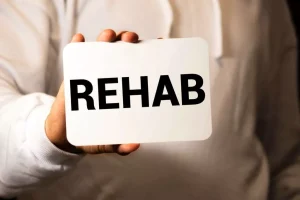
Abusing older adults can have legal consequences, with penalties varying by state. Each state has different definitions of elder abuse and different penalties. To help you protect yourself or loved ones from this crime, we’ve analyzed new data from the Centers for Medicare and Medicaid Services https://ecosoberhouse.com/ and gathered the latest statistics from the leading government and research organizations. The National Council on Aging (NCOA) is proud to champion the rights of older Americans—especially women, people of color, the LGBTQ+ community, people with low income, and those living in rural areas.
- Department of Justice nor any of its components operate, control, are responsible for, or necessarily endorse, this Web site (including, without limitation, its content, technical infrastructure, and policies, and any services or tools provided.
- Around 11 percent of abuse citations had to do with a lack of policies that would prevent abuse of elderly residents, and five percent had to do with the wrongful use of nursing home residents’ money.
- Another limitation is that most of the existing studies do not provide reliability and validity information for the instrument.
- In addition, specific findings from physical examinations that may further indicate elder abuse should be documented.
- 2021 NSDUH report includes selected estimates by race, ethnicity, and age and is the most comprehensive key findings report to date.
What are the warning signs of elder abuse?
A similar approach was used for consequences, and only studies in which elder abuse was the primary independent variable and confounding factors were used were included. Studies in which primary analyses were bivariate in nature were not included, articles identified using the search methods were independently reviewed, and studies were selected according to the criteria. Social isolation and mental impairment (such as dementia or Alzheimer’s disease ) are two factors. Recent studies show that nearly half of those with dementia experienced abuse or neglect. Interpersonal violence also occurs at disproportionately higher rates among adults with disabilities.

What is Elder Abuse?
Addressing the nation’s mental health crisis and drug overdose epidemic are core pillars of the Biden-Harris Administration’s Unity Agenda. These investments enabled the expansion of lifesaving prevention, treatment, and recovery services and supports in communities throughout the country, including the transition to the 988 Suicide & Crisis Lifeline in July 2022. Sex can be a risk factor for substance abuse, especially alcohol abuse, in older adults.
Elder Abuse: Systematic Review and Implications for Practice

Health professionals should consider integrating routine screening of elder abuse in clinical practice, especially in high-risk populations. Patient-centered and culturally appropriate treatment and prevention strategies should be instituted to protect vulnerable populations. Although vast gaps remain in the field of elder abuse, unified and coordinated efforts at the national level must continue to preserve and protect the human rights of vulnerable aging populations. Elder abuse includes physical abuse, emotional/psychological abuse, sexual abuse, financial exploitation, neglect, and abandonment. Perpetrators include children, other family members, and spouses—as well as staff at nursing homes, assisted living, and other facilities. The trauma of elder abuse can result in premature death, the deterioration of physical and psychological health, destruction of social and familial ties, devastating financial loss and more.
Emotional/Psychological Abuse
Since there are unique reasons many older Americans don’t report abuse, speaking up if you notice red flags could be the support someone needs to begin to get help. No one deserves abuse, and no matter what your situation, there are ways to find help. The Nursing Home Abuse Center partners with nursing home abuse lawyers who can help families in all 50 states. By taking legal action, you can also hold the abusers accountable and protect others from suffering similar harm. Discovering that someone you love is the victim of abuse can be devastating, especially when they are harmed by someone they trusted. Sometimes paired with neglect, elder abandonment happens when someone who cares for an older person intentionally deserts them.
Social Media
Here are a few key factors contributing to the growing substance abuse problem among seniors. If you are an older adult who has been experienced elder abuse or another crime, you are not alone. When reporting elder abuse, you should provide as much evidence as possible. Although there is no way to reverse the suffering elder abuse causes, compensation from a nursing home abuse lawsuit can help you start the healing process by easing financial burdens.
This quiz is meant to help you better understand possible signs of abuse to keep you and your loved one safe. Neglect can lead to serious health problems, including bedsores, sepsis, and even death. ” It isn’t always easy for someone who experiences abuse to be open about what’s happening to them. They may feel shame, fear, guilt or other emotions that may affect their ability to ask for help and be honest with you.
Individuals with Alzheimer’s disease and other neuro-cognitive impairments are at a greater risk. An official website of the United substance abuse in older adults States government, Department of Justice. Learn more about the types of abuse from the National Center on Elder Abuse (NCEA).

However, the prevalence of elder abuse may be much higher, as the Roadmap’s research suggests that only one out of every 24 cases is reported. Older adults can be especially vulnerable to financial, physical, and psychological abuse. In the case of an acute visit, it is critical to get a detailed history of the mechanism of injury or events leading up to their visit as the history requires a comparison to exam findings for congruency. Family members and caregivers should not be used as translators in cases when abuse is suspected.[5] The history and exam must be detailed and objective as they may later be part of an investigation.


